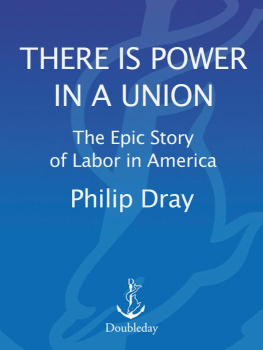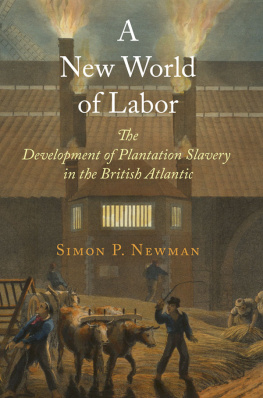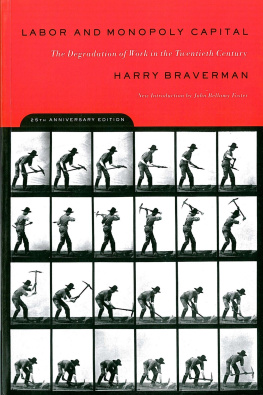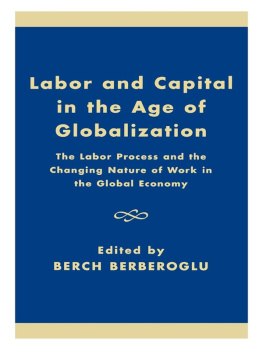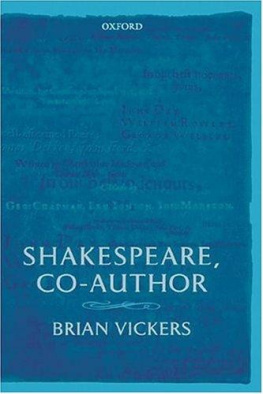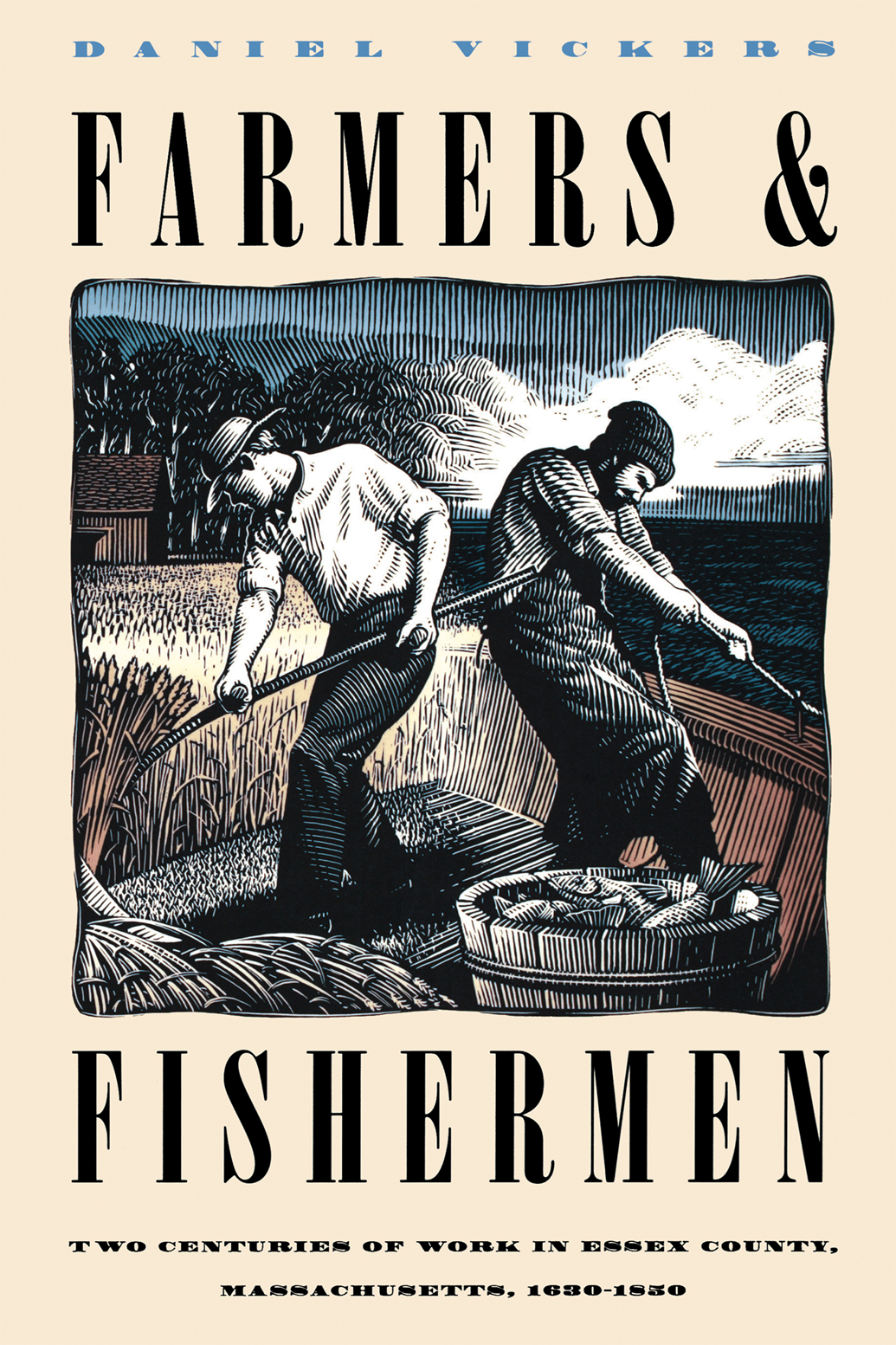
Contents
Farmers and Fishermen

PUBLISHED FOR THE
OMOHUNDRO INSTITUTE OF
EARLY AMERICAN HISTORY AND CULTURE,
WILLIAMSBURG, VIRGINIA,
BY THE UNIVERSITY OF
NORTH CAROLINA PRESS
CHAPEL HILL AND LONDON
The Omohundro Institute of Early American History and Culture is sponsored jointly by the College of William and Mary and the Colonial Williamsburg Foundation.
1994 The University of North Carolina Press
All rights reserved
Manufactured in the United States of America
Original illustrations 1994 by John MacDonald
The paper in this book meets the guidelines for permanence and durability of the Committee on Production Guidelines for Book Longevity of the Council on Library Resources.
Library of Congress Cataloging-in-Publication Data
Vickers, Daniel.
Farmers and fishermen : two centuries of work in Essex County,
Massachusetts, 16301850 / by Daniel Vickers.
p. cm.
Includes bibliographical references and index.
ISBN 0-8078-2148-9 (alk. paper) ISBN 0-8078-4458-6 (pbk. : alk. paper)
1. Essex County (Mass.)Social life and customs. 2. Farm life
MassachusettsEssex CountyHistory. 3. FishingMassachusettsEssex
CountyHistory. I. Institute of Early American History and Culture (Williamsburg, Va.) II. Title.
F72.E7V58 1994
97445-dc2o 9336514
CIP
This volume received indirect support from an unrestricted publication grant awarded to the Institute by the L. J. Skaggs and Mary C. Skaggs Foundation of Oakland, California.
09 08 07 06 05 7 6 5 4 3
To my mother, my sister, and the memory of my father
Preface
The idea for this book was hatched in a graduate seminar, when John Murrin drew my attention to the puzzle posed by Evsey Domar regarding the absence of slavery in northern colonial regions like New England, where free labor obviously was scarce. On one level, the puzzle was easy to solve; since they had no highly profitable staple export, New En-glanders could not afford to own slaves. I was still left with a problem, however: explaining how these northerners managed to deal with the labor scarcity they so frequently deplored. I conceived the possibility of writing a coherent history of New Englands preindustrial development around the theme of three successive adaptations: first, the English encounter with the frontier and their adjustment to the risks and costs of operating in an environment short of labor and capital; second, the passing of that frontier and the accommodations that resulted as productive wealth and manpower began to accumulate within the region; and third, the changes that were set in motion by the commercialization that began at the end of the eighteenth century. As a case study, this book describes these broad developments within a rather limited compass. For practical purposes I have limited myself to one particular region (Essex County), two significant occupations (fishing and farming), and that half of the population who left behind the vast majority of work-related records (men). My story has implications for other areas and different occupations, and it tries to remain sensitive to the issue of gender by not universalizing from male behavior. Yet because it asks questions for which evidence is not easily forthcoming from all subsets of early American society, it focuses by necessity on two groups that are particularly well documentedthe farmers and fishermen of Essex County. The single question that governs most of what will followwho worked for whom and under what termsis one about which historians of the colonial north might well be more precise. By trying to be careful about how I answer this question, I hope to suggest a way in which others, examining different regions, a variety of trades, and above all the other sex, can complement or contest my findings and arguments.
The other important influence on this book, wholly undreamt of when I began, has been the experience of living in Newfoundland. Perched not in central Canada, where I grew up, or in Princeton, where I was trained, but here on the easternmost fringe of the North American continent, New England looks different. Living in a society where industrialization has never happened, where chronic underemployment remains the rule, and where most people still have to cobble together a sufficiency from a wide variety of sources, the important question seems now to explain why the Puritan colonies developed at all. It brings me back to Andre Gunder Franks call for a history of the New World where the northern United States and the peculiarities of its comparatively happy economic experience are not the yardstick but the exception in a broader story of economic change in which development is not assumed. I join with other historians in trying to illustrate what can be gained when America is examined from the outside.
Reporting currency values in a book that covers early modern England, colonial Massachusetts, and nineteenth-century America is a complicated matter. I have tried to keep to the following guidelines. For English values (in ), I have presented all figures in dollars, assuming that between 1751 and 1775 1 in Massachusetts Lawful Money equaled $3.33. Wherever confusion might arise from this method, I have tried to address the problem in the footnotes. In a few cases, especially when citing contemporaries and modern historians, the standard used in the source was impossible to determine; here I have reported the money values as I found them recorded.
Evsey D. Domar, The Causes of Slavery or Serfdom: A Hypothesis, JEH, XXX (1970), 30.
Andre Gunder Frank, World Accumulation, I4g2-iy8g (New York, 1978), 192.
Acknowledgments
Over the sixteen years since the research for this book began, I have accumulated a great many debtssome to individuals whose names I never learned, others to people whose names I cannot recall, and still others to people I know well but who are altogether too numerous to mention individually here. It is in the nature of publishing that authors get credit for work that others perform, and to all of them I would like to express my appreciation. They saved me from numerous errors; those flaws that remain are naturally my responsibility.
The project began as a doctoral dissertation at Princeton University under the direction of John Murrin. A model supervisor, he sparked my initial interest in early American history, went to bat for me when necessary, and above all demonstrated to me that humor, kindness, and good companionship are compatible with serious study. On a more formal level, I owe a debt to the various institutions that supported me through my graduate and postgraduate careers. For financial assistance, I would like to single out Princeton University, the Social Sciences and Humanities Research Council of Canada, the Mellon Foundation, the American Philosophical Society, the American Council of Learned Societies, and the Institute of Early American History and Culture. To the Institute, which awarded me a two-year postdoctoral fellowship in 19811983 and has sponsored my scholarly career in all sorts of informal ways since, I am especially grateful. The universities where I have taught during these yearsthe College of William and Mary, the University of Wyoming, Harvard University, and especially the Memorial University of Newfoundlandhave all contributed in dozens of ways, large and small, to the production of this book. Their college libraries and interlibrary loan services helped immeasurably; their administrations often funded travel and student assistance when necessary; and the academic communities I encountered at each continually pushed me to improve my product.


